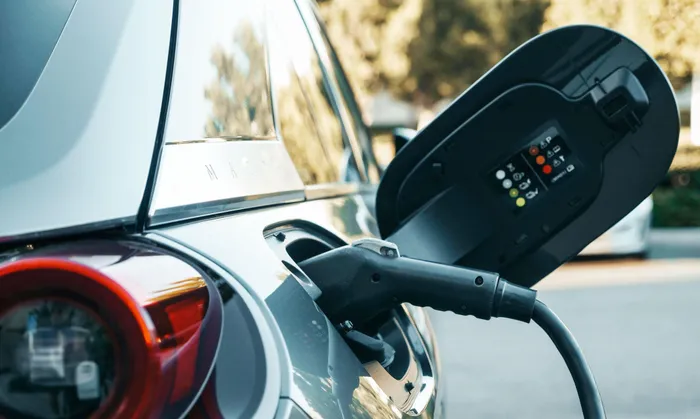Automotive sector in a time of distress: An opportunity for localised EV manufacturing

The author says the government must take lead in creating an enabling environment with incentives to encourage new electric vehicle manufacturing.
Image: FILE
In the Eastern Cape, the automotive industry sustains thousands of families and anchors the provincial economy and our country’s automative sector.
The province is home to the largest automobile industry in the country, with four major vehicle manufacturers and even more vehicle component manufacturers. It produces 46.5% of light passenger vehicle in South Africa, as well as 53% of the light vehicle exports (NAACAM, 2023). But right now, it faces its most difficult challenge to date. Global trends are reshaping the automotive industry at an unprecedented pace.
The automotive sector drives the province's economy, contributing to manufacturing employment and millions of rands to gross value added. However, the global shift towards New Energy Vehicles (NEVs), which require fewer parts and different manufacturing processes, presents both opportunities and challenges.
At the same time, geopolitical realignments and shifts in trade relations, climate and energy policy has delivered unimaginable shocks like import tariffs by the United States, the unilateral escalation of non- tariff barriers like border carbon adjustments (BCAs) in Europe and developing country economies not performing to the urgency of the task of cushioning their peoples and export sectors from these shocks.
With the US 30% tariff on certain South African exports, part of a broader protectionist wave impacting many of its trading partners, our industry captains went into a frenzy and many in our called for a foreign policy of minimal direct relations to our trade and what we export.
Whether a function of nationalist protectionism by the imposing states or influenced by any other factors like our country’s stand on other matter like peace and security, these measures are set to rattle the economic nests in South Africa in the auto, agriculture and chemicals and polymer sectors to mention a few. These export earners, drives and sustains the economies and livelihoods of communities in the Eastern Cape. The sharp tariff increase could make the Eastern Cape’s vehicle exports prohibitively expensive in the American market.
The Global Tariff Shock
The Department of Trade, Industry and Competition has indicated that the US is South Africa’s third-largest trading partner, accounting for 7.5% of our exports. But for the Eastern Cape’s automotive industry, this means a direct blow to its competitiveness.
The EU’s Carbon Border Adjustment Mechanism (CBAM) is first BCA to be operationalised, but is currently in transition period, but tariffs are set to come into effect in 2026. This will be another blow for Eastern Cape vehicle manufacturers as it will directly affect its cost and competitiveness in Europe, its main export market.
The South African automotive industry is integrated into global supply chains but is still largely dependent on internal combustion technology even though export markets are transitioning to NEVs.
Globally, NEVs could make up 30% of the market by 2030, but in South Africa, the adoption is expected to be slower, potentially reaching 15% due to infrastructural and economic challenges.
The shift towards NEVs is not only disrupting the market share of internal combustion engine (ICE) vehicles, but brings with it a demand for new skills, new raw materials, and infrastructure needs to mention but a few. Without a deliberate push into NEV manufacturing, South Africa risks being sidelined as global demand shifts.
That is why a just transition, one that supports workers through reskilling and invests in community resilience is not optional; it is essential. The government must take lead in creating an enabling environment with incentives to encourage NEV manufacturing.
This moment calls for urgent adaptation, from embracing NEV manufacturing and cleaner production methods to diversifying markets and strengthening regional supply chains, if the Eastern Cape and the country’s overall auto sector is to remain competitive.
To navigate this new reality, the Eastern Cape’s automotive industry must embrace a multi-pronged strategy of accelerating investment in NEV, decarbonising production to mitigate emerging climate-linked trade measures, and diversifying export markets with the regions as a priority the African Continental Free Trade Area.
As we bemoan the unilateral trade penalties by the superpowers, we must equally address our constraints to growth and development in the region by resolving macro policy issues and integrated planning , whilst making local government function in delivering services like repairing roads, providing quality water and reliable energy sources for human development and industrial use.
In a province where the automotive industry is one of the few large-scale employers, any sustained disruption has ripple effects that can hollow out local economies. It is the port worker whose shifts will vanish; and many of my family members in the Bay whose work hours will reduce, and the guest house that will shed bed-nights from fewer visiting engineers; and the informal trader near the plant that will sells fewer lunch packs.

Zimasa Vazi, Senior Manager Stakeholder Engagements at the Presidential Climate Commission.
Image: Supplied
Zimasa Vazi, Senior Manager Stakeholder Engagements at the Presidential Climate Commission.
*** The views expressed here do not necessarily represent those of Independent Media or IOL.
BUSINESS REPORT